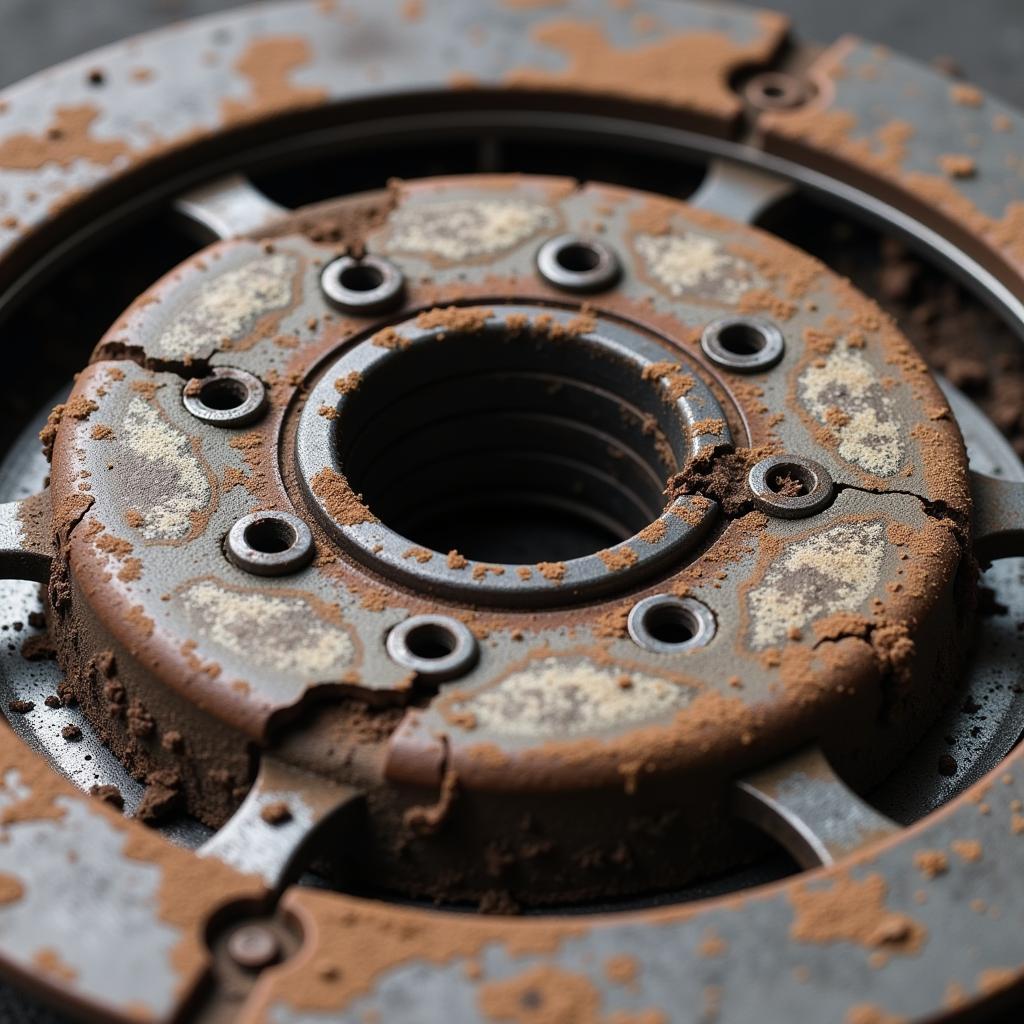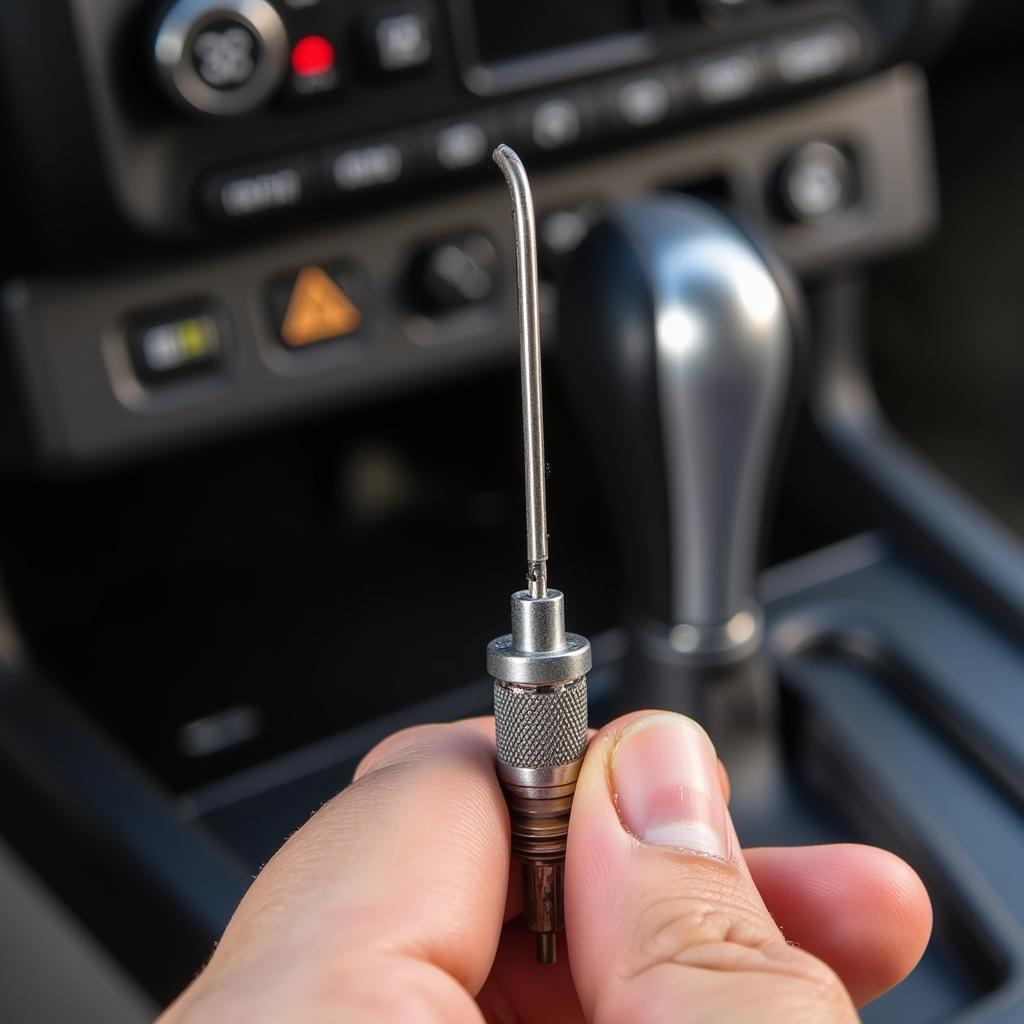Is your car giving you a hard time shifting gears? This is a frustrating and potentially serious problem that needs addressing. Whether it’s grinding, slipping, or just plain refusing to shift, difficulty changing gears can indicate a variety of issues, from simple maintenance oversights to significant mechanical failures. This article will guide you through common causes and solutions, empowering you to diagnose and potentially fix the problem, or at least communicate effectively with a mechanic.
Having trouble getting your car into gear? Many factors can contribute to car problems. Sometimes it is due to problem when car wont go into gear.
Common Causes of Gear-Changing Problems
Several factors can contribute to gear-changing issues in your vehicle. Understanding these can help you narrow down the possibilities and save you time and money. These range from low transmission fluid, which is a relatively simple fix, to more serious issues like a damaged clutch or worn synchronizers.
Low Transmission Fluid
Perhaps the most common culprit is low transmission fluid. This vital fluid lubricates the intricate components within your transmission, allowing them to engage smoothly. Low fluid levels increase friction and heat, leading to difficult shifting and potential damage. Check your fluid level regularly and top it off if necessary. Remember to use the correct type of fluid specified in your owner’s manual.
Clutch Issues (Manual Transmission)
If you drive a manual transmission car, a worn or failing clutch can make changing gears difficult. A slipping clutch might make it hard to engage gears fully, while a stiff clutch pedal can make it physically challenging to shift.
 Worn Clutch Disc Leading to Gearbox Problems
Worn Clutch Disc Leading to Gearbox Problems
Synchronizer Problems (Manual Transmission)
Synchronizers match the speeds of the gears during shifting, allowing for smooth transitions. Worn or damaged synchronizers can result in grinding or clashing when shifting, especially at higher speeds.
Shift Linkage or Cable Problems
The shift linkage or cable connects your gear shifter to the transmission. If these components become loose, damaged, or misaligned, it can disrupt the connection and make changing gears imprecise or impossible.
Transmission Damage (Automatic and Manual)
Internal damage to your transmission is the most serious potential cause of shifting problems. This can include worn gears, damaged bearings, or a failing torque converter (automatic transmissions). These issues usually require professional repair or even a transmission rebuild.
Electronic Issues (Automatic Transmission)
Modern automatic transmissions rely on complex electronic systems. A malfunctioning sensor, solenoid, or control module can disrupt shifting patterns and cause various problems, from harsh shifts to the transmission getting stuck in a single gear. Diagnostic trouble codes (DTCs) can help pinpoint these electronic gremlins.
Why is my car not shifting gears properly?
Several issues can prevent your car from shifting gears properly, including low transmission fluid, a faulty clutch, damaged synchronizers, problems with the shift linkage or cable, and internal transmission damage. Electronic problems can also affect automatic transmissions.
 Checking Transmission Fluid Level on Dipstick
Checking Transmission Fluid Level on Dipstick
Troubleshooting Gear-Changing Problems in My Car
Before rushing to a mechanic, you can perform a few simple checks. Firstly, check your transmission fluid level and top it off if necessary. If you drive a manual car, listen for any unusual noises when engaging the clutch or shifting gears. Observe if the clutch pedal feels different than usual. For both automatic and manual transmissions, pay attention to any warning lights on your dashboard. Early detection can often prevent more extensive damage. Utah redneck car problems may range from simple maintenance issues to more serious mechanical failures. More information at utah redneck car problems.
When to Seek Professional Help
If the problem persists after checking the fluid level and inspecting for obvious external issues, it’s time to seek professional help. A qualified mechanic can accurately diagnose the problem using specialized tools and expertise. They can also advise you on the best course of action, whether it’s a simple repair or a more involved transmission overhaul. Don’t delay seeking professional help if you suspect a serious issue, as continuing to drive with a damaged transmission can worsen the problem and lead to significantly higher repair costs. A car accident can significantly affect the transmission. For more information about transmission problems following accidents, visit transmission problems after car accident.
Conclusion: Getting Your Car Shifting Smoothly Again
“My Car Is Having Problems Changing Gears” is a common complaint, but it doesn’t have to be a permanent one. By understanding the potential causes and taking appropriate action, you can restore smooth shifting and extend the life of your transmission. Regular maintenance and prompt attention to any warning signs are crucial for keeping your car running smoothly on the road. Remember, early diagnosis and intervention can often save you from costly repairs down the line. Car accidents can also impact the differential. Learn more about this at car differential problems after accident. For any automotive questions or if you need expert assistance, connect with us at AutoTipPro at +1 (641) 206-8880 or visit our office at 500 N St Mary’s St, San Antonio, TX 78205, United States. We are here to help you get back on the road! If you’re in Australia and facing car troubles, you can find helpful resources at car problems australia.
 Car Driving Smoothly After Gearbox Repair
Car Driving Smoothly After Gearbox Repair
FAQ
-
What is the most common cause of gear-changing problems? Low transmission fluid is often the primary culprit.
-
How do I check my transmission fluid level? Refer to your owner’s manual for specific instructions, as the procedure varies between vehicles.
-
Can I drive my car with difficulty changing gears? It’s best to avoid driving and seek professional help to prevent further damage.
-
How much does it cost to fix gear-changing problems? The cost varies depending on the underlying issue, ranging from a simple fluid top-up to a complete transmission rebuild.
-
How can I prevent gear-changing problems? Regular maintenance, including fluid checks and changes, is crucial for preventing problems.
-
What are the signs of a failing transmission? Difficulty shifting, slipping gears, grinding noises, and unusual smells are all potential indicators.
-
What should I do if my car is stuck in gear? Do not force it. Contact a tow truck and have your car transported to a qualified mechanic.




Leave a Reply